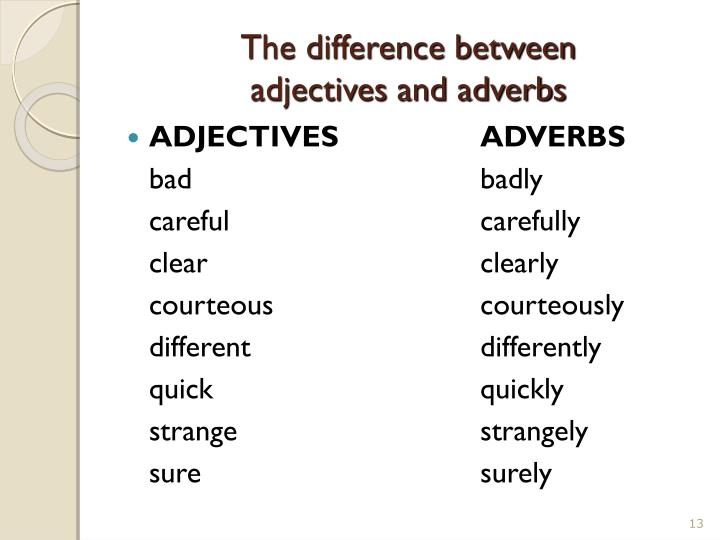
Shape: oval, round, square, pointed, boxy.Age: old, young, ancient, new, antique.Temperature: hot, cold, blistering, tepid, freezing.Value or opinion: good, bad, yummy, pretty, awesome.Possessives: his, their, everyone’s, our.ĭ. When adjectives function together, their order depends on their function.Ĭ. Similar linking verbs include: taste, smell, sound, look, appear, or seem. For example,ĭid you notice the use of “ be,” “ feel,” and “ like”? With sensory verbs, you can almost always expect a modifying adjective to follow.

However, some adjectives appear after linking verbs that express what we feel, perceive, or enjoy. Most adjectives appear before the noun or pronoun they modify. “The road leads straight home.” (adverb)Īdjectives are descriptive words that modify nouns or pronouns to clarify: Which? How many? What kind? Using adjectives in sentences.

To understand when these terms function as adjectives or adverbs, look for the underlined word (the modified term): However, some adverbs retain the exact spelling as their adjective form, such as hard, fast, or straight. For instance, many adjectives turn into adverbs by adopting -ly, -ily, -ally, or -y at the end of the word: It’s easy to confuse adjectives and adverbs because they often have similar or identical words.


 0 kommentar(er)
0 kommentar(er)
